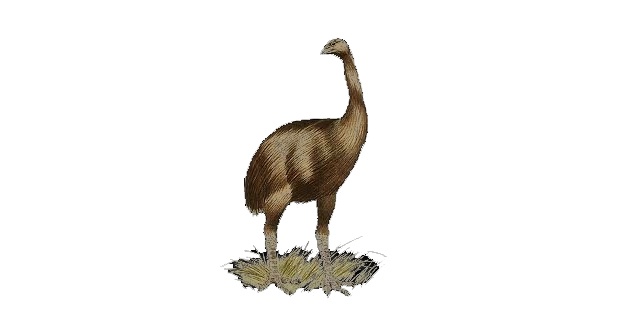Science
Colossal Bioscience Aims to Resurrect Moa with Gene Editing

A Texas-based biotechnology firm, Colossal Bioscience, is advancing its ambitious project to revive the South Island giant moa, a bird species that has been extinct for centuries. In collaboration with researchers from Ngai Tahu, a Māori iwi in New Zealand, the company plans to utilize ancient DNA and gene-editing technologies to achieve this goal. The initiative reflects similar efforts by Colossal Bioscience to recreate extinct species such as dire wolves and mammoths.
The giant moa, which stood at about 3.6 meters tall and weighed over 230 kilograms, was native to New Zealand and became extinct around 500 years ago. Its extinction was largely due to human activity, particularly hunting by the Māori. The project aims not only to resurrect the bird but also to restore its ecological role within its habitat.
Ben Lamm, Chief Executive Officer of Colossal Bioscience, discussed the project in a recent interview with Ryan Bridge. He emphasized the significance of combining modern technology with ancient genetic material to bring back the moa. “We believe that by harnessing the power of gene editing, we can unlock the potential of ancient DNA to recreate species that have long vanished,” Lamm stated.
Scientific Approach to Resurrection
The method proposed by Colossal Bioscience involves extracting DNA from preserved moa specimens and sequencing their genetic material. This information will be used to identify the specific genes responsible for traits such as size, feather structure, and other characteristics. Subsequently, gene editing technology, specifically CRISPR, will be employed to modify the DNA of a closely related species, such as the emu, to reflect the genetic makeup of the moa.
This technique has already shown promise in other de-extinction projects. The successful recreation of the mammoth and the potential return of the dire wolf demonstrate the feasibility of using gene editing for this purpose. The collaboration with Ngai Tahu also highlights a commitment to engaging indigenous perspectives in the scientific process, ensuring that the cultural significance of the moa is respected.
Ecological Impact and Ethical Considerations
While the scientific possibilities are exciting, the endeavor raises questions regarding ecological impact and ethical considerations. Bringing back a species that has been extinct for centuries may disrupt existing ecosystems. Experts will need to assess how the return of the moa might affect current flora and fauna, as well as the broader environmental implications.
Additionally, ethical discussions surrounding de-extinction often focus on the responsibilities of humanity toward species that have been lost. Lamm acknowledged these concerns, stating, “We must approach this project with a sense of responsibility and respect for both the species we aim to revive and the ecosystems they once inhabited.”
The project is still in its early stages, and timelines for the potential resurrection of the giant moa remain uncertain. However, the collaboration between Colossal Bioscience and Ngai Tahu signifies a groundbreaking approach to conservation and genetic research. The outcome could reshape how humanity interacts with extinct species and their ecosystems in the future.
As Colossal Bioscience continues its work, the scientific community and the public will be watching closely to see how this innovative project unfolds. The resurrection of the giant moa could serve as a pivotal moment in the field of biotechnology and conservation, merging ancient history with cutting-edge science for a new era of ecological restoration.
-

 World4 months ago
World4 months agoTest Your Knowledge: Take the Herald’s Afternoon Quiz Today
-

 Sports4 months ago
Sports4 months agoPM Faces Backlash from Fans During Netball Trophy Ceremony
-

 Lifestyle4 months ago
Lifestyle4 months agoDunedin Designers Win Top Award at Hokonui Fashion Event
-

 Entertainment4 months ago
Entertainment4 months agoExperience the Excitement of ‘Chief of War’ in Oʻahu
-

 Sports4 months ago
Sports4 months agoLiam Lawson Launches New Era for Racing Bulls with Strong Start
-

 World5 months ago
World5 months agoCoalition Forms to Preserve Māori Wards in Hawke’s Bay
-

 Lifestyle4 months ago
Lifestyle4 months agoDisney Fan Reveals Dress Code Tips for Park Visitors
-

 Health4 months ago
Health4 months agoWalking Faster Offers Major Health Benefits for Older Adults
-

 Politics4 months ago
Politics4 months agoScots Rally with Humor and Music to Protest Trump’s Visit
-

 Top Stories5 months ago
Top Stories5 months agoUK and India Finalize Trade Deal to Boost Economic Ties
-

 Health2 months ago
Health2 months agoRadio Host Jay-Jay Feeney’s Partner Secures Visa to Stay in NZ
-

 World5 months ago
World5 months agoHuntly Begins Water Pipe Flushing to Resolve Brown Water Issue









